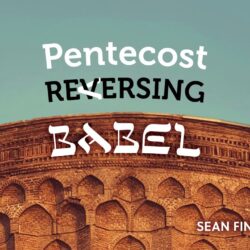 This is part six in our series on responding to your questions and comments. In light of our killing series, we considered whether Christians should kill the old, the young, enemies, or criminals, however we never addressed the morality of God killing. Brian asked:
This is part six in our series on responding to your questions and comments. In light of our killing series, we considered whether Christians should kill the old, the young, enemies, or criminals, however we never addressed the morality of God killing. Brian asked:
Can I expect a subsequent episode where you discuss a sort of ‘divine inflicted’ death, for example, the event with Nadab and Abihu in Leviticus 10; also the deaths of Ananias and his wife, Sapphira, in Acts 5? If yes, wonderful, if no, then perhaps you could consider it.
Hopefully in the future we can delve more deeply into this subject, but for now, here is a brief response to this important question.
—— Links ——
- Check out the episodes in our killing seres
- See other episodes responding to your questions and comments
- Intro music: “Protofunk” by Kevin MacLeod. Licensed under Creative Commons: By Attribution 3.0 License.







Guys, thank you so much for responding to my comment!
I thought the passages were handled with nicely. If my memory serves me correctly, I believe I was speed reading Greg Boyd’s “Crucifixion of the Warrior God” [I do not recommend this book] when you did this episode, which stimulated my comment. I appreciated Dan’s inclusion of the Uzza story, which I had forgotten about when leaving this comment. I will be looking forward to a future episode of this topic being discussed further, should you choose to do so.
Forgive my nit-pickiness, please, and perhaps this would be better discussed in person, but I’m not sure how soon that will happen now due to our relocation plans. I would like Sean to substantiate his claim at the 7-minute mark: “Now instead of setting up the tabernacle, we’re setting up the new way of relating to God. He’s setting up the Church and there’s no more animal sacrifices, but you still have offerings.
It doesn’t seem like offerings were being brought to God in the early chapters of Acts; rather, some of these early Jewish believers were selling their homes and joining a sort of commune in Jerusalem (Acts 4:32), perhaps in eager anticipation of the Parousia. They seem to be exhibiting the Torah ideal of Deut. 15:4, “there will be no poor among you, since the LORD will surely bless you in the land which the LORD your God is giving you as an inheritance to possess.”
Anyway, I’m not suggesting that there can’t be financial offerings, considering the financial gift Paul is collecting for this very community (Rom 15:16; Gal 2:10; 1 Cor 16:1). I’m asking if animal sacrifices really ceased prior to the destruction of the Temple? Sean declared, “There’s no more animal sacrifices, but you still have offerings…” This doesn’t line up with Acts 21:23-26 where Paul pays for not only animal sacrifices for himself, but for 4 others. Also in Acts 24:17, I would understand the alms to be the financial gift to the community, and the προσφοράς to be the animal sacrifices in Acts 21. For me, it doesn’t seem like there’s no more animal sacrifices at Acts 5.
Again, I know this is nit-picking. Still, I think this is important. (Perhaps a discussion topic?) 🙂
Thanks for doing the show guys!
With gratitude,
Brian
If you touch the ark you die, if you do this or that you die, does not mean God kills them. No more than a parent can be held accountable because their child did not listen and obey when warned about the hot stove. The consequence are built into the hot stove, its not the parents who burned the child’s hand. We know from reading the Bible that the Devil has the power of death, that his mission is to kill, and that death is an enemy, he is the stove.